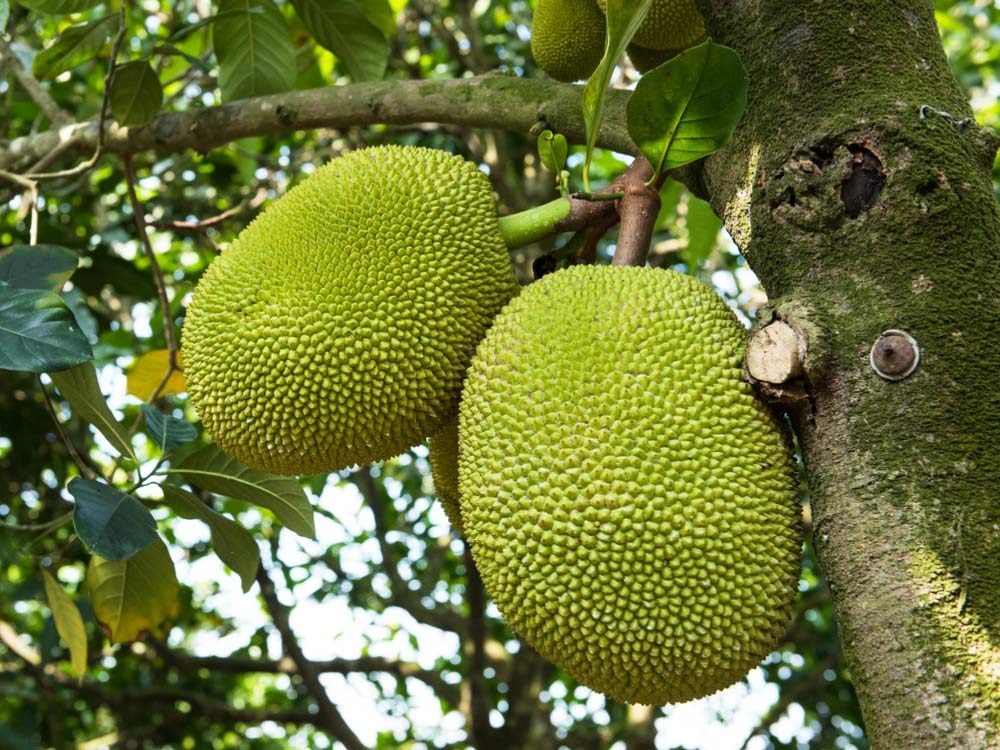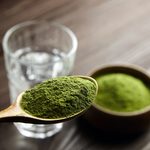What Is Jackfruit and Why Is It the New Meat Replacement?
If you don’t know jack about jackfruit, pay attention, because you’re about to meet your new protein substitute.

What you need to know about jackfruit
Take a walk down the produce aisle and you may spot a light green, oval-shaped, nubby fruit. While every fruit is distinctive, this one in particular is hard to ignore. The jackfruit, which is native to Southeast Asia, parts of India, Jamaica, and South America, is fast becoming the latest popular meat substitute in vegan diets and vegetarian meals. From pulled “pork” sandwiches to desserts, jackfruit has proven to be a versatile plant that both meat eaters and non-meat eaters alike can appreciate. Here’s what you need to know about this trending tropical fruit.
Jackfruits pack in a lot of nutrition. They’re high in protein (with 2.8 grams per cup of sliced fruit, which is 5 per cent of your daily value for protein), plus calcium, and thiamine, vitamin A, and carbohydrates. They’re also rich in energy and dietary fibre, and free from saturated fats or cholesterol. In some regions, jackfruits are even being used to treat conditions such as hypertension, diabetes, diarrhea, tuberculosis, fever, and liver cirrhosis. (Here are 12 groceries that are worth buying organic.)
And because the fruit is so easy to grow—a jackfruit tree can yield up to 200 jackfruits a year—there are efforts being made right now to plant them throughout the world as a way to combat food shortages in Third World countries.
At the market, you may see two seemingly different types of jackfruit, but it’s the same fruit—only one is mature and the other is young. The young jackfruit is sweet and crunchy, and the older version is usually softer and tastes less sweet. You may also find jackfruit in sold in cans. According to vegan chef and owner of Community Cafe in St. Petersburg Florida, Mandy Keyes, suggests opting for the younger version if you plan on cooking savoury meals. “We researched and found that young jackfruit in a can is much easier to work with,” she says. (This one food can help you fall asleep—and boost your IQ.)
Unlike some fruits, jackfruits are entirely edible. The seeds can be boiled, roasted, or ground into flour, depending on the dish you’re making. The flesh, which looks like orange-yellow colour bulbs, is what makes this fruit so versatile. It can be made into ice cream, chips, jam, soup, candy, and more. You can slice it into a fruit salad or use it in a jam, jelly, or chutney. Keyes cooked up a barbeque-style jackfruit dish at her restaurant last summer. “We sautéed the jackfruit, then slow-baked it in BBQ sauce and spices; then continued to let it simmer in a slow cooker for BBQ shredded jackfruit sandwiches. Keyes and her staff kept their original recipe and then spiced things up by turning them into tacos the following season. “It took just about 10 or 20 minutes to sauté, then about an hour to bake, and the longer you leave it in the crockpot, the better it tastes,” she explains.
If you’re vegetarian or vegan, you know that it can be a challenge to get adequate protein. Consider buying jackfruits—and other items on this list the best plant-based proteins—to meet your daily quota for good health.
This is what Neve Campbell wants you to know about child hunger in Canada.



